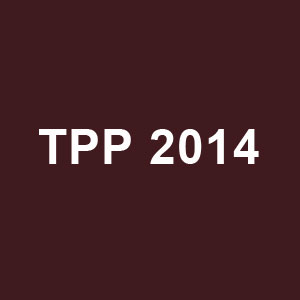The Performance of an Economic Crisis: Economy Theatricalized, the Cases of Tomas Sedlacek and ‘De Warme Winkel’
In his best-selling book Economics of Good and Evil, Tomas Sedlacek tries to read economic theory as a cultural phenomenon and as an ethical discourse. This leads to a profound critique on the quasi-religious status of economic theory, as a epistemological paradigm, a status that could even explain our political incapacity to imagine alternative systems of (re)distribution of commodities.
Tomas Sedlacek himself, accompanied by two actors, made a performative ‘leafing through’-version of his book, a mix of lecture-performance and slapstick acting. And the Dutch theatre collective ‘De Warme Winkel’ created We are your friends, a theatre production which embodies the victims and the ruins of globalization, visible in the heart of cities like Brussels. They do not illustrate Sedlacek’s point of view, they confront an audience with econometrics-as-religion, e.g. unraveling the terrifying logic of Roma begging. In this production, they make a strong statement about the ethics of both art and market.
In my contribution, I want to analyze both Sedlacek’s script and performance, and the theatre production We are a friends as specific efforts to embody and to perform the ‘postmodernist condition’ in the sense of Frederic Jameson, i.e. as the discursive and performative representation of late (‘post-Fordist’) capitalism. Both productions are, ironically, part of a developed market system: Sedlacek profits from global marketing and from his bestseller status, We are your friends is a typical European co-production, paid by several theatre organizations trying to find artistic common ground for financial reasons – recent cutbacks in art subsidies. So both productions not only show, prima facie, the consequences of self-righteous economic thinking – its intellectual black holes, its physical threats – they also are part of a larger ‘culture of performance’ which mirrors the political-economic system itself. Do they really work like this? That is the first research question. The next question could be: in which sense these theatrical events – especially Sedlacek’s performance – represent and even reproduce the performative nature of this system itself?
Klaas Tindemans is Ph.D. in Law and he works as teacher/researcher of performance studies, theatre history, cultural policy and political theory at the RITS School of Arts (audiovisual and performing arts) in Brussels, where he coordinates the research program. He also teaches at the Vrije Universiteit Brussel, and at the Antwerp Conservatory (drama department). In the past he was dramaturge with theatre director Ivo van Hove (the current manager of Toneelgroep Amsterdam), research assistant at the K.U.Leuven (legal theory & legal philosophy), teacher/researcher at Tilburg University (legal philosophy & legal ethics) and general manager of the Flemish Theatre Institute. He was also active as dramaturge with the Antwerp based actors’ collective ‘de Roovers’, with Bronks, the youth theatre of Brussels and with directors Lies Pauwels and Chokri ben Chikha. He wrote and directed two plays: Bulger (2006) and Sleutelveld (2009). For Bulger he received the ‘Förderpreis für neue Dramatik’ (Theatertreffen Berlin, 2008). As an academic, he publishes about legal-philosophical issues, politics and theatricality, ancient tragedy, contemporary (documentary) theatre and cultural policy.

